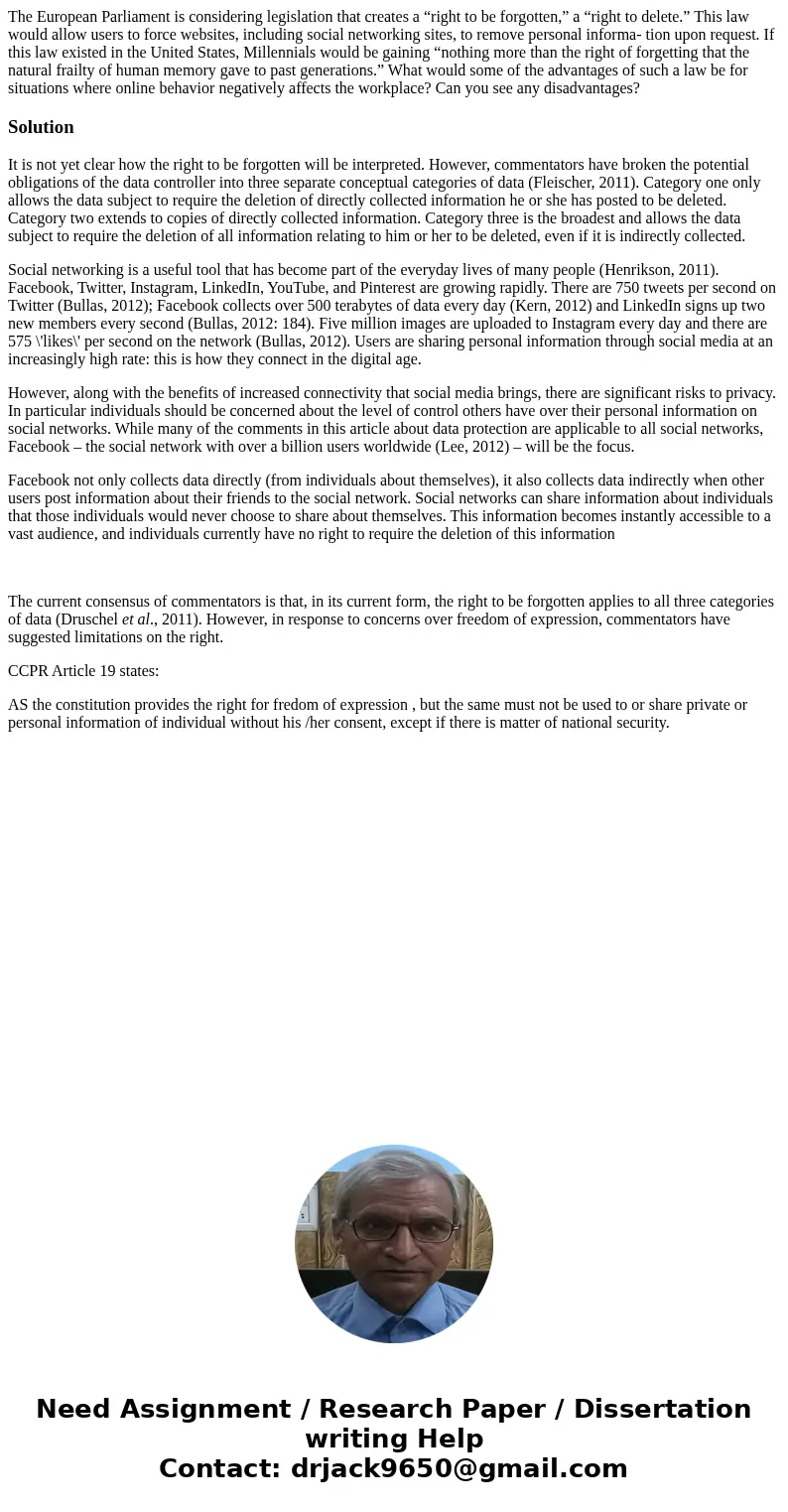The European Parliament is considering legislation that crea
The European Parliament is considering legislation that creates a “right to be forgotten,” a “right to delete.” This law would allow users to force websites, including social networking sites, to remove personal informa- tion upon request. If this law existed in the United States, Millennials would be gaining “nothing more than the right of forgetting that the natural frailty of human memory gave to past generations.” What would some of the advantages of such a law be for situations where online behavior negatively affects the workplace? Can you see any disadvantages?
Solution
It is not yet clear how the right to be forgotten will be interpreted. However, commentators have broken the potential obligations of the data controller into three separate conceptual categories of data (Fleischer, 2011). Category one only allows the data subject to require the deletion of directly collected information he or she has posted to be deleted. Category two extends to copies of directly collected information. Category three is the broadest and allows the data subject to require the deletion of all information relating to him or her to be deleted, even if it is indirectly collected.
Social networking is a useful tool that has become part of the everyday lives of many people (Henrikson, 2011). Facebook, Twitter, Instagram, LinkedIn, YouTube, and Pinterest are growing rapidly. There are 750 tweets per second on Twitter (Bullas, 2012); Facebook collects over 500 terabytes of data every day (Kern, 2012) and LinkedIn signs up two new members every second (Bullas, 2012: 184). Five million images are uploaded to Instagram every day and there are 575 \'likes\' per second on the network (Bullas, 2012). Users are sharing personal information through social media at an increasingly high rate: this is how they connect in the digital age.
However, along with the benefits of increased connectivity that social media brings, there are significant risks to privacy. In particular individuals should be concerned about the level of control others have over their personal information on social networks. While many of the comments in this article about data protection are applicable to all social networks, Facebook – the social network with over a billion users worldwide (Lee, 2012) – will be the focus.
Facebook not only collects data directly (from individuals about themselves), it also collects data indirectly when other users post information about their friends to the social network. Social networks can share information about individuals that those individuals would never choose to share about themselves. This information becomes instantly accessible to a vast audience, and individuals currently have no right to require the deletion of this information
The current consensus of commentators is that, in its current form, the right to be forgotten applies to all three categories of data (Druschel et al., 2011). However, in response to concerns over freedom of expression, commentators have suggested limitations on the right.
CCPR Article 19 states:
AS the constitution provides the right for fredom of expression , but the same must not be used to or share private or personal information of individual without his /her consent, except if there is matter of national security.

 Homework Sourse
Homework Sourse